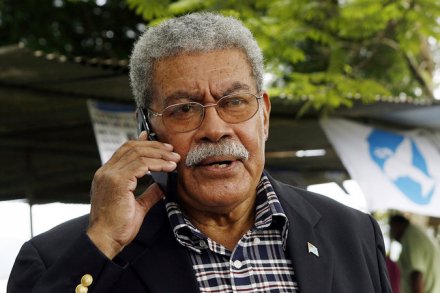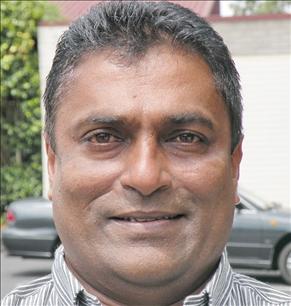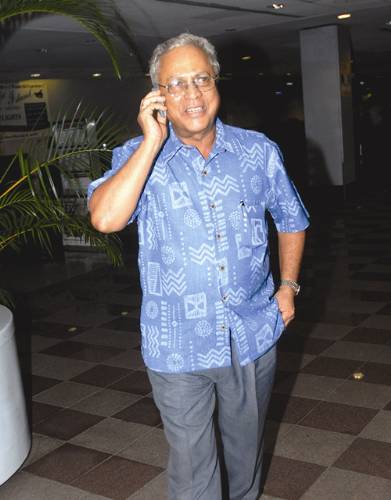
 I read with increasing interest, and not a little bit of trepidation, the recent release by former Fijian Prime Minister Laisenia Qarase on his Party’s always-multiracial political platform and purported broad-based support.
I read with increasing interest, and not a little bit of trepidation, the recent release by former Fijian Prime Minister Laisenia Qarase on his Party’s always-multiracial political platform and purported broad-based support.
This was in response to Graham Davis’ thought-provoking piece titled, ‘Rumblings of the next eruption in SDL talk,’ in which he questioned whether a race-based party like the SDL would be allowed to field a supposedly reformed and race-inclusive Qarase in the next general elections.
What amused me most was Lai’s translation of his party’s name, Soqosoqo ni Duavata ni Lewenivavua as “Association of People United.”
In Fijian, my immediate reaction would have been, sa va’domobula na va’dewa (translation) qori To, but I would limit my article to an expanded evaluation of the just-purported multiracial philosophy and inclusiveness of Qarase’s SDL and the mistakes of the past.
At the inception of the SDL, amid the race-charged environment churned by the 2000 coup, the word lewenivanua was clearly meant to indicate lewe ni vanua va iTaukei – the people of the land.
Going to lengths
 It was not possible to talk inclusiveness at that time because the bulk of the movers involved with the formation of the SDL were avowed ethno-nationalists who had cocooned and defended Speight during the 56-day siege of Fiji’s parliament.
It was not possible to talk inclusiveness at that time because the bulk of the movers involved with the formation of the SDL were avowed ethno-nationalists who had cocooned and defended Speight during the 56-day siege of Fiji’s parliament.
There were two additional problems with the longer version of the name: it was too long and it lacked a popular ring like SVT for instance.
Can you imagine using the Soqosoqo ni Duavata ni Lewenivanua va iTaukei or SDLT as a party name to spin popular appeal?
The party planners obviously knew that there was no need to lengthen the name because their supporters knew exactly what the name meant.
This is borne out to some extent by the results of the recent Citizens’ Constitutional Forum (CCF) survey titled, ‘Scratching the Surface.’
Relevant findings indicated that 75% of iTaukei respondents said that only iTaukei are ‘Fijians.’ This could be taken to mean that these 75% felt that all non-iTaukei are vulagi or visitors. Furthermore, 80% of iTaukei respondents said that only those registered in the Vola ni Kawa Bula (VKB) are legal citizens of Fiji.
Getting to grassroots?
With that kind of understanding and attitude, it is not difficult to see how the Fijian electorate viewed the word lewenivanua and the SDL’s political philosophy. That was exactly what the SDL and Qarase were all about.
This was repeatedly played out in Qarase’s parliament quite emphatically. When Welfare Minister Asenaca Caucau referred to Indo-Fijians as co or grass, her colleagues guffawed and snickered (depending on the level of decorum at play).
When Ted Young insulted Kamlesh Arya by calling him “ponga pundit,” it would not be an exaggeration to say that Indo-Fijians were silently screaming for Qarase to reprimand him – nothing happened.
Caucau was allowed to add insult to injury by attempting to explain rather than apologise later. Ro Teimumu Kepa was allowed to bequeath USP with an outside Vice Chancellor simply because Professor Rajesh Chandra failed the race test. Should she have been held responsible for the ensuing pillage at USP – only time will tell?
Mutually exclusive
That was the SDL and Qarase in power. There was no inclusiveness in the party (apart from Rajesh Singh who was later shafted by his Minister) because the very ideology that propped and drove it was exclusionary.
It was exclusionary for very parochial reasons; this was the problem with Lai and his troupe and was the root of the type of corruption that brought popular support to the Bainimarama coup of 2006.
Qarase and his gang were using race to gain popular support among the ethnic Fijian electorate while striking deals and contracts left right and centre.
A connected group, in which Qarase was a key cog by virtue of being the Prime Minister, went on the rampage using the ethno-nationalist mantra to ransack the country for personal gain.
Many of them are no longer in Fiji. How did they manage to leave and sustain themselves abroad (until they found work if at all) if they did not have any stashes to fall back on?
Now Qarase is back and attempting to redefine his party’s creed by saying that lewenivanua meant, “people united.”
Another opportunist
Interestingly, he does not confirm whether lewenivanua was supposed to mean all the people of Fiji. On the other hand, his nemesis Mahendra Chaudhry (another former Prime Minister) is girding up to enter the fray once again.
This same Chaudhry failed to span the ethnic divide as Prime Minister over a period of 12 months when he had all the resources at his disposal.
When he was invited to that pivotal Naitasiri meeting with the Qaranivalu in early 2000 the die was cast. In his eagerness to prove too many points and bring too many people to heel, he forgot the importance of human relations as the first step to success in politics.
In Fiji, this has an inevitable ethnic dimension that calls for special caution; Chaudhry chose to overlook this as he went about quick managing the country in an attempt to show tangible fruits first.
That proved ill-advised and the time-fed marginalised few began to rally the masses using the race card to maximum effect in order to destabilize the country for a forced solution. That forced solution had to come from two sources – the military and/or the Great Council of Chiefs.
Shape political opinion by stoking latent fears using the race card, march to mobilise and affect visible effect, destabilise and call for drastic intervention – that has been the blueprint for coups in Fiji.
I have a lot to say about this, but these columns have a word limit.
We can talk sensitivities as we embark on yet another attempt to draw up a constitutional framework for Fiji, but maybe it is time to centralise sensibilities instead.
Subhash Appana (Email: appanas@hotmail.com) is a forceful writer, academic and political commentator. The opinions expressed here are his own and not necessarily those of Indian Newslink. Readers may respond to editor@indiannewslink.co.nz






